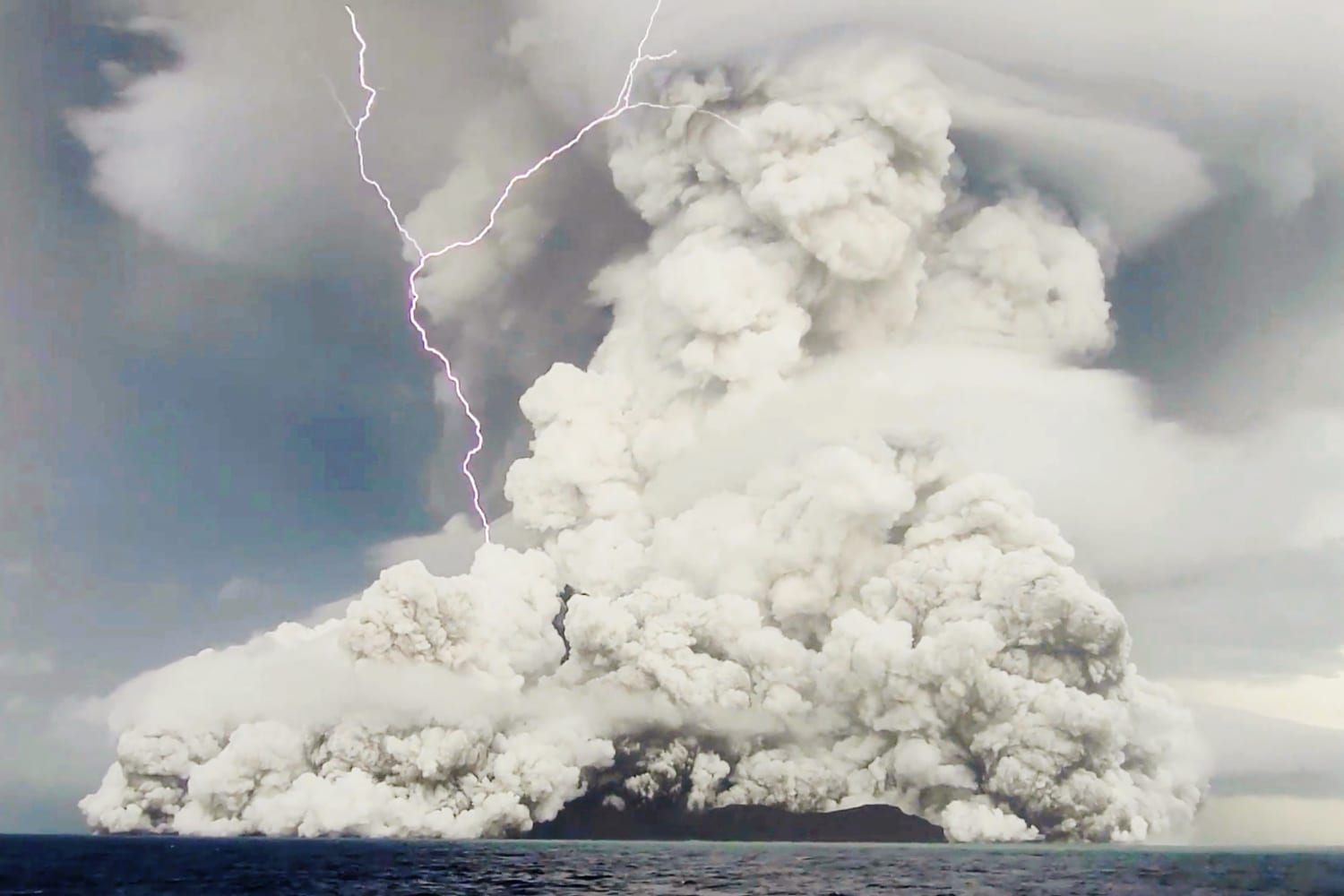Picture a major tsunami, with almost 50-foot waves, causing untold damage, made even more destructive because there was no adequate emergency alert system in place to warn residents. In the aftermath of the destruction, picture trying to use your cellphone to call first responders but realizing you can’t because the entire mobile network system has gone down.
Using the smartphone already in most Americans’ pockets, we now have the technology to implement a global early warning system.
Unfortunately, this is not the product of one’s imagination. This is the reality today for the Pacific island nation of Tonga after being on the receiving end of a major volcanic eruption and accompanying tsunami on Saturday. “Tonga has been largely cut off from the world since the twin disasters, which damaged an undersea communications link,” The Washington Post noted.
Tonga is now covered in ash. Clean drinking water has been affected by the ash pollution and is limited. Heavy ash is hindering the operations of the airport and slowing down international relief. Houses have been destroyed by the tsunami, and many people are seeking shelter. And all of this is exacerbated because the one major cable to the area has been cut, shutting down the internet and other means of international communication.
It’s not just you — the world really is going from major disaster to major disaster. Forest fire season has become year-round, with Colorado recently joining California in seeing now-common annual occurrences. Last year had the third-highest number of Atlantic hurricanes on record. Then last month, a series of major tornadoes killed people and destroyed homes across six states, centering on Kentucky, before this weekend’s devastation in Tonga.
Fortunately for those who have connectivity, and with it organized emergency alert systems, tsunami warnings were sounded in the West Coast of the United States, Japan, New Zealand and select areas on the Pacific Rim. But not every country sent out an alert, and people located in remote areas in some of the more developed countries didn’t receive those that were sent because they had no coverage.
Tsunamis are one of the most deadly types of natural disasters, and they are only expected to get worse as sea levels rise. In 2004, the Boxing Day tsunami killed more than 230,000 people across 14 countries, among the worst natural disasters in recorded human history. The 2011 tsunami centered on Japan, meanwhile, killed more than 19,000 and is generally regarded as the most expensive natural disaster in history by causing over $220 billion in damage. It was so powerful that its waves caused at least $100 million of damage along California’s coast.
Could a large tsunami happen in the United States? Take it from none other than the U.S. Geological Survey, which answered that question by noting, “Large tsunamis have occurred in the United States and will undoubtedly occur again.”
But we can take steps to reduce or even prevent the enormous death tolls from tsunamis. Using the smartphone already in most Americans’ pockets, we now have the technology to implement a global early warning system that can alert everyone, everywhere, and provide instant backup communications after a disaster hits, whether it’s a tsunami, fire, hurricane, tornado or blizzard.
A global early warning system must remain functional before, during and after a disaster. Previous natural disasters have taken out cellphone towers and other modes of modern-day communication because they were based on land, and a quarter of the U.S. population uses cellphone towers threatened by wildfires. The only fool-proof way to avoid this is if the actual system is removed from Mother Nature’s grip here on the planet and run using satellites in orbit.
My company, Lynk, has invented technology to connect satellites directly to standard mobile phones, and we have built, launched and operated five test satellites in space. We have succeeded in connecting thousands of standard mobile phones on Earth with our cell towers in space and successfully delivered emergency alerts directly to ordinary mobile phones on Earth. (As the CEO of Lynk, I would stand to profit if a global system were implemented, though Lynk’s plan would be to provide emergency alerts as a free public service for those countries we have a commercial license to operate within.)
While some smartphone apps already provide warnings, even better would be the app you don’t have to add to your phone first. An emergency broadcast message sent directly to the user from ground-based and space-based cell towers should be received by all phones in the targeted areas, including on major bodies of water such as the oceans, with or without an app.
Such an early warning system must involve the private sector as well as the government, because a global service requires staying current with rapid mobile technology innovations only the way private industry can. After all, for a global early warning system to work, it must be compatible with the phones that sit in everybody’s pocket.
But private companies cannot implement such a global service on their own, especially when it comes to international coalition-building with like-minded nations that care about saving lives while adhering to global privacy standards. Further, only governments can decide when emergency alerts should be sent, to whom and with what message.
The technology to prevent deaths, countless times over, is now here. It just requires the leadership to implement a global emergency alert system. Mother Nature is not patiently waiting for us to take action.
Source: | This article originally belongs to Nbcnews.com











